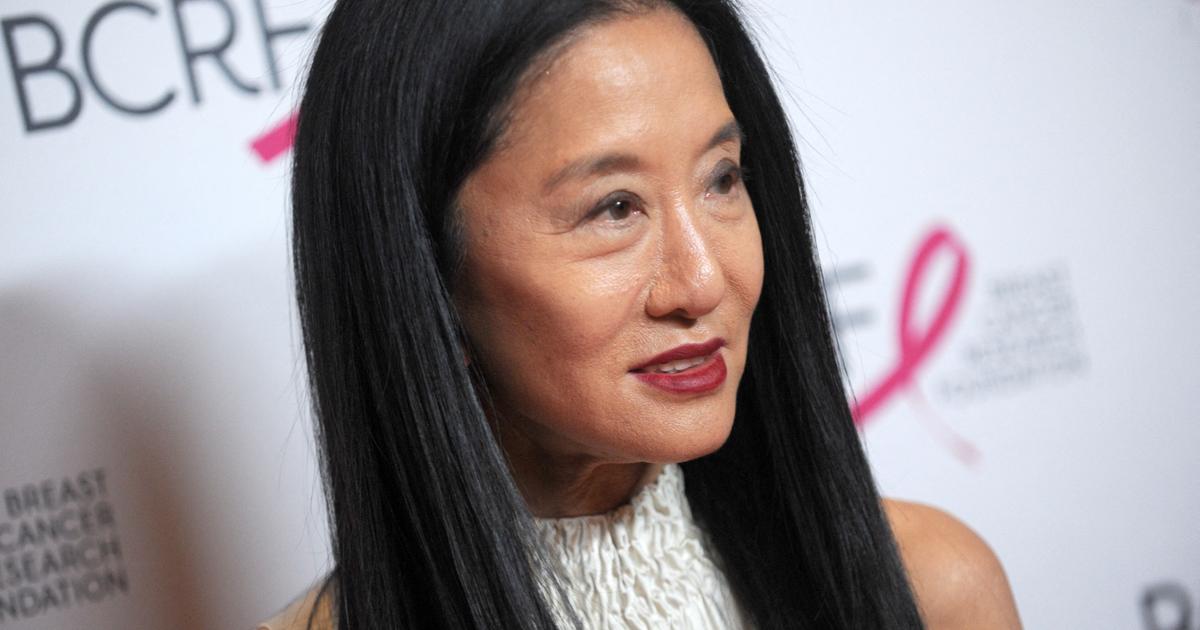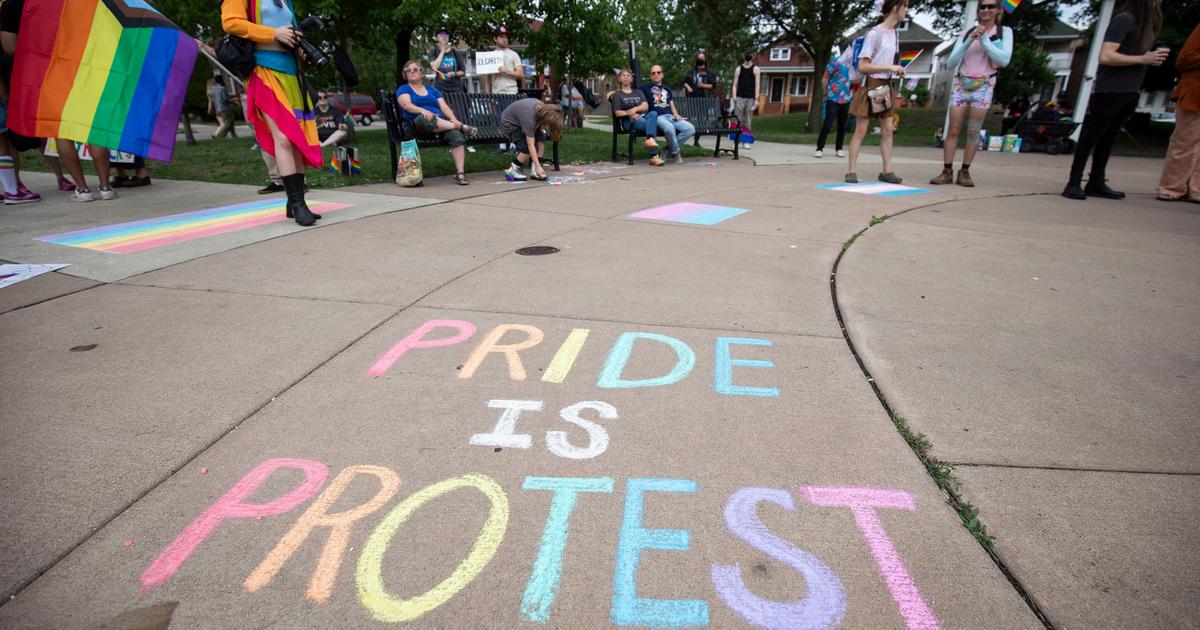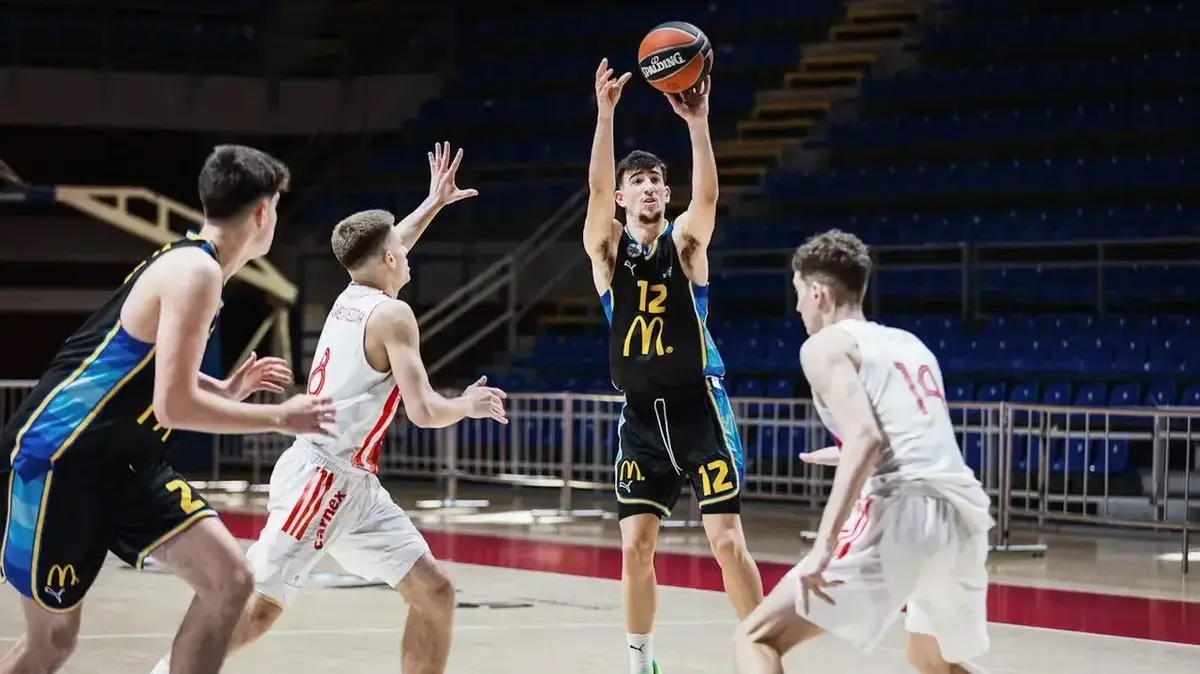It took the artist and poet Cecilia Vicuña (Santiago de Chile, 1948) half a century of work to get rid of the idea that her work was “absolutely invisible”.
The veteran of ecofeminism went from that quasi-anonymity to placing herself in the exquisite eye of the main museums in the world.
Recently awarded the Golden Lion for Lifetime Achievement at the Venice Biennale —the first Chilean to receive the award—, and soon to exhibit at the Guggenheim in New York and at the Tate Modern in London, Vicuña attributes her
momentum
to great part of the new feminist wave, which discovered in her poems, paintings, books and performances a resonance to the struggle flag of the movement.
"The women of my generation were never interested in what I did," she says by phone from the small island of Siro, in Greece.
Daughter of artists and revolutions, she lives in exile since the Chilean dictatorship.
Augusto Pinochet's military coup in 1973 found her in London and she did not return.
She has lived in New York for four decades and, during all this time, her poetry has sought different showcases to defend the claims of indigenous peoples, feminism and environmentalism.
Her premature awareness is not attributed to books or a mentor, but to "the teaching of the ground", the one that enters through the soles of her feet.
That direct contact of hers with nature shaped her.
The climate crisis is what is now shaping young people.
“There is a desire to be what everyone feels they should be and wants to be very strong at this time which, I think, has to do with the ecological threat.”
Question:
At what vital moment do you receive the Golden Lion?
Answer:
It catches me at an absolutely incredible time.
Suddenly, since the Documenta 14 fair [2017, Athens], an ability to feel and see what my work has been for more than half a century has been generated, being that until that moment it was absolutely invisible.
It is as if the invisibility had become visible from one minute to the next.
In the 1980s I wrote a poem in English in the language of word-words [one of his works that consists of redefining the lexicon in its own morphology]: 'The visible is within the invisible and the invisible is within the visible'.
That is what I am living.
Q:
You receive it at the first Venice Biennale dominated by female artists.
A:
It's like being in the middle of a historical and paradigm shift.
Not only had there never been an Italian female curator -Cecilia Alemani-, but since I started, my first individual exhibition was in 1971, there has never been a biennial in any Western cultural country where 80% were female artists.
It is a change, it is a decisive moment.
Q:
In 1972, in fact, you painted the
Cultural Front
, where there was a newsstand with headlines about the Mapuche struggle and the right to abortion in Chile.
The same headlines you see today.
A:
Exactly.
One of the reasons why they gave me the award was to give visibility to artists whose works were anticipatory and that when they were created they had no arrival.
However, now, especially young people, they vibrate with those things because they are using that language.
A language that comes from long before, sequentially forgotten.
The poets and artists have to remember what has been erased and transform it into a new language so that it activates the transformations again.
We cannot continue living in this violence against the earth and against living beings.
I feel that the youth revolution is no longer ideological, it is an ontological, philosophical, ethical and sensitivity revolution.
The desire for justice is so fundamental because the abuse has become too much.
Q:
What characterizes this ontological revolution?
A:
The main value of this revolution is the right to be as they want to be.
They do not want to define themselves as men or women, but rather as an undefined state.
That is undoubtedly an ontological revolution.
Same-sex marriage has been accepted in many countries.
The definition of what sex is, what sexuality is, what sensitivity is, all of that is changing.
This is a revolution of the sensitivity of being, ontological, a desire to be what each one feels they should and wants to be, and I think it is a response to the ecological threat and authoritarian states.
Q:
Has this revolution helped you get closer to Chile?
A:
I have always had a very deep closeness with the land of Chile and with the people who have an affinity with my feelings, but that affectivity and that participation has been invisible.
Nobody knew that I was doing works in the mountain ranges, in the streets, in the seas with other communities.
Everything was as if it didn't happen.
Suddenly, the young people, and especially the young women, began to discuss this and that began to intensify with the
penguin
revolution [of the students, 2006].
The women of my generation were never interested in what I did.
On the other hand, those who are 20, 30, 40 years younger than me have been interested.
There is a change of perspective, not only generational.
Q:
With what eyes do you see the processes of change that Chile is experiencing?
A:
It seems to me an extraordinary opportunity to write a Constitution collectively.
I don't think there are many places in the world that are giving themselves that right.
This is a precious and fragile right, incredibly fragile, because it is always subject to distortions and linguistic violence: the speech of hate, fear, contempt.
That fragility is for me the fundamental thing of the living being, that is why I create precarious art [small sculptural works made from waste].
There is a precariousness that makes us infinitely vulnerable and infinitely powerful at the same time.
I believe that this is a moment of immense vulnerability for the creativity of the Chilean people and, at the same time, if it decides to protect and take care of the opportunity we have to make a fair Constitution, that would open doors to a new reality.
Q:
How does that vulnerability relate to language?
A:
It has to do with language in the sense that the right to know the truth has already been violated because there is a domain of false discourse of what is called
fake news
.
There is all the power of money oriented to hide the truth.
With that, the language is already violated.
Chile's ability to sustain itself is also violated because the water has been stolen, it has been privatized, so the country is drying up.
The land is vulnerable due to climate change, pollution, destructive practices such as salmon farms or mines that destroy everything.
Scientists around the world have declared the final alert, which implies that the habitability of the planet for human beings is ending.
That is the vulnerability.
Q:
You have said that you were educated by the earth.
A:
I did not form my conscience either by books or by something they told me.
I was fortunate to grow up in the Chilean countryside and that no one controlled me.
I had shoes, but I preferred to go barefoot because I felt the ground and what the ground communicates to you is infinite.
There was no one distorting or commanding.
My parents were young, free and did not pay attention.
For them there was not much difference between children and chickens, said as something positive.
That freedom I had to think my own thoughts, to feel my own feelings, is what made me the artist that I am.
When in adolescence I began to find that thinking or feeling like that was not right, I couldn't stop myself.
Q:
At one point they take her out of that field.
A:
My first exile was when I was 9 years old, when they took me out of those forests and took me to live in the upper neighborhood of Santiago.
They put me in an English school where children were forced to eat gringo soap if they said a word of Spanish.
I obviously didn't know anything so I was passing with a mouth full of bubbles.
Q:
At 9 years old, you couldn't stop it?
A:
Absolutely.
That's where I started my first childhood revolution.
I put on a suit invented by me and told the children that if we were indigenous we would walk around the woods and not in a school locked up and forced to listen to things that did not matter to us.
I have created an educational system based on the thoughts of that little girl.
Q:
That little girl is 74 years old today and has several exhibitions in the pipeline.
A:
In May a solo show opens at the Guggenheim in New York.
The show, which occupies half the museum, consists of many of my symbolic works from the 1960s to now, but it is not a retrospective but rather a perspective, a vision of my work.
There will be paintings, installations, words, films and performances.
One that is indeed retrospective is Veroir: enlightened failure, an exhibition that is now in Bogotá after passing through the Netherlands, Mexico and Spain.
And in October I will present other shows at the Tate Modern in London.
Q:
Are you tired?
A:
I'm not tired, I'm exhausted to death and at the same time full of energy.
It is a paradoxical state because this happens when I am an old lady, instead of when I was young.
Is it a good or bad thing?
It is not known.
Let's see if I'm still alive after two years and then we can talk.
Subscribe here to the EL PAÍS América newsletter and receive all the key information on current affairs in the region.
Exclusive content for subscribers
read without limits
subscribe
I'm already a subscriber









